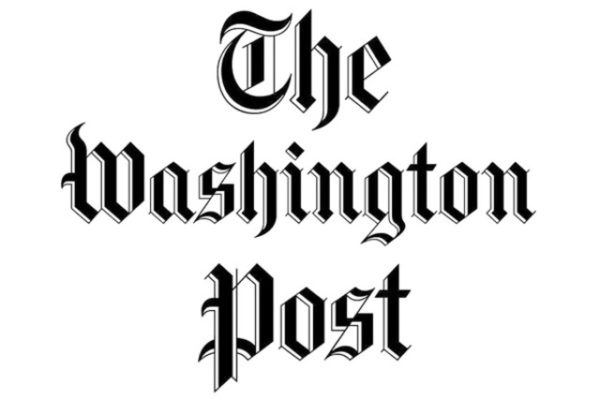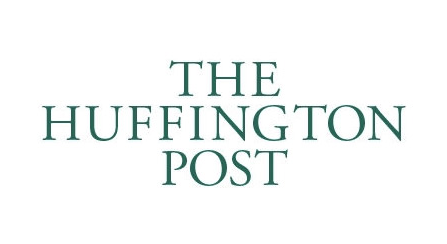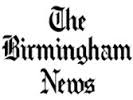Home Health Fraud
Frohsin Barger & Walthall Are Experienced Home Health Fraud Attorneys and Won the Largest Home Health Fraud Settlement in United States History Against Amedisys
When home health nurse April Brown came to Frohsin Barger & Walthall with allegations that national home health giant Amedisys was defrauding the Medicare system, she triggered an investigation by the firm that convinced Jim Barger and Elliott Walthall that Amedisys was committing fraud on massive, nationwide scale. Ultimately, six more whistleblowers filed suit against Amedisys, and Barger and Walthall – acting as lead trial counsel – helped negotiate a record $150 million settlement for the U.S. and $26 million reward for the whistleblowers. Our initial client, April Brown, received $15 million as her reward for exposing Amedisys’ fraud. The Amedisys settlement, negotiated by Frohsin Barger & Walthall, remains the largest Medicare home health fraud recovery in our nation’s history.
“This settlement demonstrates the department’s commitment to ensuring that home health providers, like other providers, comply with the rules and don’t misuse taxpayer dollars.”
– Assistant Attorney General Stewert Delery, commenting on Frohsin Barger & Walthall’s record $150 million settlement with Amedisys
Frohsin Barger & Walthall Has Identified and Uncovered the Following Types of Home Health Fraud:
- Billing for home care provided to non-homebound, non-qualifying patients
- Upcoding or overstating the severity of a patient’s condition; inflating patient OASIS scores by falsifying or manipulating information
- Billing for medically unnecessary therapy visits and other treatment
- Billing for services not rendered, including visits that are never performed
- Billing for services performed by untrained, unauthorized personnel
Requirements for the Medicare Home Health Benefit:
As part of its Part B coverage, Medicare pays for some “home health services” for qualified patients. To qualify for home health care reimbursement under Medicare, a patient must: (1) Be “homebound” as defined by Medicare; (2) need part-time skilled nursing services or speech therapy, physical therapy, or continuing occupational therapy as determined by a physician; and (3) be under a plan of care established and periodically reviewed by a physician and administered by a qualified home health agency. See 42 U.S.C. 1395(f). The requirements are detailed further below:
(1) Homebound Status Requirement
In order to have taxpayer funded healthcare provided in the home, Medicare requires that the patient actually be “homebound.” Medicare defines “Homebound” as: “The patient must either: require the use of special transportation; or the assistance of another person or need the aid of supportive devices such as crutches, canes, wheelchairs, and walkers in order to leave their place of residence because of illness or injury; OR – Have a condition such that leaving his or her home is medically contraindicated.
If the patient meets one of these conditions, then the patient must ALSO meet two additional requirements that the patient has a normal inability to leave home; AND – Leaving home must require a considerable and taxing effort.
Indications of Non-Homebound Patients
A common indication that a patient is not actually homebound is if the patient frequently leaves home for routine or recreational activities. When a home health company has non-homebound patients on its census, it can cause significant administrative problems for home health staff — who are required to schedule and see patients but often find the patient is not at home at the time of a scheduled visit. Often, in situations involving non-homebound patients, home health field staff find themselves between “a rock and a hard place” because the home health agency management mandates staff continue seeing non-homebound patients but the staff have trouble scheduling and locating patients who are rarely home. In some cases, home health field staff have been made to see patients — who are purportedly homebound — at locations outside the patients home. If home health companies and their staff know a patient is frequently leaving the home but certify that the patient is eligible for the Medicare home health benefit and bill Medicare for home care, then the home health company is violating the False Claims Act.
(2) “Skilled Need” Requirement
To qualify for the Medicare Home Health Benefit, a patient must need one of the following types of services:
Part-time skilled nursing service; Physical therapy; Speech-language pathology services or continuing occupational therapy as determined by a physician.
However, some home health companies recruit and certify patients as needing skilled nursing care or qualifying therapy when the patient does not medically require such care. For instance, some patients may be chronically ill, morbidly obese or have other conditions that render them homebound under the Medicare definition but do not require any skilled nursing care. If a home health company has knowledge that a patient does not require any skilled nursing care, such as being informed of this information by home health field employees, but retains the patient on home health care and bills Medicare for such care, then the home health company is violating the False Claims Act. In recent years, some unscrupulous home health companies have turned to prescribing medically unnecessary therapy to fraudulently boost payments from Medicare.
(3) Patients Must Be Under a Valid Plan of Care
Medicare requires that home health patients be under a plan of care established and periodically reviewed by a physician and administered by a qualified home health agency. However, in some home health fraud cases, the reviewing physician, often employed as a medical director for the home health company, is not involved in establishing or administering patient plans of care. A common indicator of this type of fraud is if many patients have identical or “copy-pasted” plans of care that are effectively rubber-stamped enrollment or recertification of home health episodes.
“[A]n analysis by The Wall Street Journal of Medicare payments to home health care companies in recent years raises questions about whether some companies — including the sector’s largest, Amedisys Inc. — are taking advantage of the Medicare reimbursement system.”
– Barbara Martinez, Wall Street Journal investigative reporter
Certifying completely ineligible patients is not the only way that home health companies have been found to commit Medicare fraud. For instance, companies committing fraud often encourage clinical staff to make the patients look sicker than they actually are on paperwork. This allows the company to receive a higher Medicare reimbursement amount than they are actually entitled. This type of “up-coding” fraud is often done by manipulating patients’ OASIS assessment.
Home Health Fraud is a Major Concern.
Home health has long been recognized as a program area vulnerable to fraud, waste, and abuse. In 2015, Medicare paid for almost 7 million episodes of home health care, totaling approximately $18.4 billion. Shockingly, the Centers for Medicare & Medicaid Services (CMS), the federal agency which oversees the Medicare program, estimated that of that $18.4 billion paid for home health care in 2015, more than $10 billion (or 54%) of those payments were improper.
Our Attorneys are National Qui Tam Experts and Trial Lawyers.
“The Accomplishments of Frohsin Barger & Walthall warrant the wealth of accolades that it has received.” — Benchmark Plaintiff
Jim Barger and Elliott Walthall are the only private attorneys general in the country ever to be tapped as part of a Department of Justice trial team in a Medicare fraud jury trial. A noted expert on the False Claims Act (FCA), Jim Barger teaches upper-level courses on the subject as an adjunct professor at the University of Alabama School of Law, which was ranked among the nation’s top 15 law schools by Business Insider in 2016. Barger has appeared on HuffPost Live, Fox 6 Atlanta, and National Public Radio and his opinions on FCA Medicare enforcement are regularly sought by major newspapers, including The New York Times and The Washington Post.
Both Jim Barger and Elliott Walthall have spoken on national panels about Medicare fraud for the American Bar Association, the American Association for Justice, and Taxpayers Against Fraud. In 2015, Barger was a featured symposium speaker on Medicare Fraud and the FCA at the Georgetown Law Center in Washington, DC. In 2016, Georgetown’s American Criminal Law Review published a new research article by Barger on the public-private partnership of the FCA.
“Frohsin Barger & Walthall Wins $150 million Home Health Fraud Settlement”
Frohsin Barger & Walthall Represents Whistleblowers Nationwide.
Frohsin Barger & Walthall investigates and litigates qui tam actions on behalf of whistleblowers in federal and state actions across the country. Our representation includes evaluating, investigating, and filing qui tam actions, as well as assisting prosecutors and investigative agents in pursuing cases and reaching settlements, with a high percentage of our cases resulting in government intervention. We have sealed cases in multiple states across the country and regularly travel to meet with United States Attorney’s offices, State Attorney General Offices, and United States Department of Justice attorneys in Washington, DC.
The False Claims Act Offers Protection for Whistleblowers.
Blowing the whistle on corporate fraud takes courage, and the law rewards that courage with certain protections. We understand that one of the most important aspects of representing corporate whistleblowers is guiding and protecting them through the difficult, stressful process of litigation. The False Claims Act (FCA) provides for a whistleblower’s case to be filed under seal and the whistleblower’s identity to be protected during the course of the government’s investigation. Further, federal laws protect against retaliation by mandating the reinstatement of wrongfully fired employees at the same seniority level, as well as an award of double back-pay, interest, and attorneys’ fees. Finally, successful whistleblowers are entitled to up to 30% of any FCA recovery, which Congress has mandated is three times the amount of fraud that is proved through the whistleblower’s allegations, plus substantial civil penalties.
Frohsin Barger & Walthall whistleblower cases have been featured in the following media outlets, among others:
Click on the media outlet logo to read the featured story.




